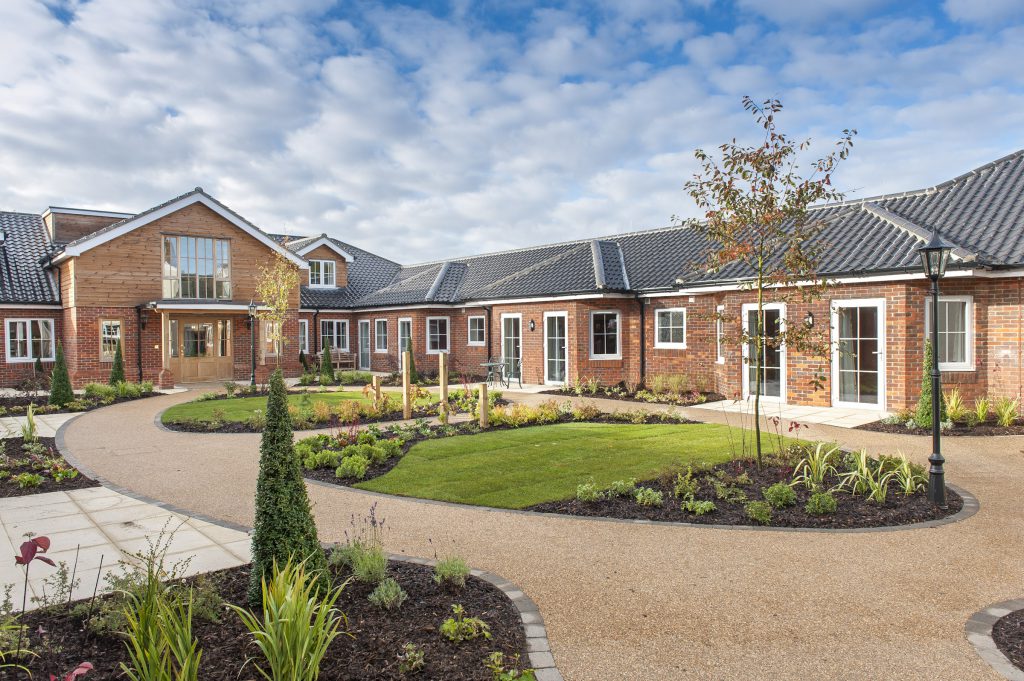- Senior Apartments
- Independent Living
- Assisted Living
- Nursing Homes
- Memory Care Homes and Alzheimer’s Care
People today live longer than ever before. When the oldest boomers were born in 1946, the average person could expect to live into their mid to late 60s.
But today, the average life expectancy for people in the United States has skyrocketed to 78.7 years, as of 2018. As lifespans continue to increase, quality of life during old age has become a more important health concern.
As people age, their physical and mental health will inevitably decline, even if they’re healthy overall. Many seniors find themselves reaching a point where they’re no longer able to safely live by themselves.
Common age related health concerns like declining physical strength, greater susceptibility to broken bones and other injuries from accidental falls, and memory loss can impair someone’s ability to remain completely independently.
Eventually, seniors and their families will need to consider other living arrangements. One of the best options out there is to move into a senior living facility. These facilities come in a variety of different forms, and run the gamut from offering just a little help here and there, to offering very intensive around-the-clock nursing care for residents.
The right type of community for any given individual can depend on their physical and mental health, their personal preferences, and other factors.
Senior living helps you find the right balance of assistance and independence to fit your health and your lifestyle. From cozy retirement communities with pools and golf courses, to nursing homes that offer intensive and comprehensive medical care, you’ll find that there are quite a few options out there when you’re ready to find the right place to spend your golden years and make the most of your retirement.
Types of Senior Living Facilities
There are several main varieties of senior living facilities, which cater to people with different needs. Some are better suited for active seniors who are in good health, while others focus more on people who need a higher level of medical care and more assistance with everyday activities and tasks.
It’s not uncommon for younger, more spry seniors to spend years in a retirement community or independent living center, then move later on to assisted living as they grow older and their needs change over time.
Here’s what you need to know about each type of senior living option.
Senior Apartments
Senior apartments provide a fun, active, social atmosphere and living environment for seniors who are healthy, active, and who don’t really need a whole lot of daily assistance or medical care.
These age-restricted communities allow only residents who are 55 or older, and legally able to be seniors only. Senior apartments are one of the only types of residential development that’s exempt from housing discrimination laws that otherwise usually treat age as a protected class.
Many people in their late fifties and older feel like they’re ready to downsize from their current home, moving somewhere a bit smaller and easier to manage. Senior apartments offer a variety of amenities like gyms, swimming pools, golf courses, and community center facilities, making them a great option for people who want to be able to be social and meet new people.
If you or an elder family member are considering moving to a 55+ senior apartment, here are a few things you should know.
- Each senior apartment is unique and will offer different amenities. It’s a good idea to shop around and look at a variety of 55+ active adult communities in your area. You may find that a senior apartment that is closer to family and friends to be a better fit than a community with more amenities.
- Senior apartments are just one option for independent seniors. There are other options such as independent senior communities, seniors condos, senior townhomes, and others. Each one of these options falls under an umbrella category of 55+ retirement communities.
- Seniors who need extra medical or personal care will need to hire an aide. Senior apartments may have amenities such as a gym or pool, but will not have medical services or personal care services available. Residents who need a little extra assistance from time to time can hire a personal care aide or a home health aide to come out weekly or biweekly to assist with certain tasks.

Independent Living
Independent living facilities are distinct from the 55+ senior apartments discussed above. Just as senior apartments are exclusive communities, independent living facilities consist of housing units designed specifically for senior residents.
In an independent living facility, you can continue to live as independently as you’d like while enjoying both the company of other seniors, and have access to a greater selection of amenities. Some of the amenities you’ll find in independent living include:
- Meals or dining service: Most independent living communities will offer a community dining service with 3 meals a day.
- Linen service: Tired of making and unmaking beds and laundering sheets? Many facilities offer this service to their residents.
- General housekeeping services: Independent communities offer cleaning services to help with general maintenance.
- Laundry service: All independent living centers have laundry facilities for residents, but many will also do your laundry for you if you’d prefer.
- Recreational Activities and Programs: This can include fitness centers, pools, recreational equipment, movie theatres, outdoor patio spaces, social programs and events, and other services.
Many, though not all, independent living centers are pet-friendly, which is a plus for animal lovers.
Assisted Living
Many seniors with physical disabilities, memory loss or impaired cognition, and other age-related health issues, need more help than a senior apartment or independent living home can provide.
This is where assisted living comes in. These senior care facilities help their residents with personal care needs, helping out with daily activities and tasks.
For many seniors, ongoing health issues can make it increasingly difficult to safely and comfortably live independently, even in a senior apartment or independent living community. At this point, the person and their family will need to determine whether assisted living may be a better option that can offer them a better quality of life.
You may want to consider assisted living for yourself or a loved one if:
- Recent accidents or close calls signaling that your loved one should not live alone. Accidents happen, but as a person gets older, the risk of an accident can be deadly. If you or your parent have recently fallen or had a medical scare at home, it might be time to move to an assisted living facility.
- Trouble with routine activities of daily living. Seniors with health issues may need help on a regular basis with things like meal preparation, cleaning, personal hygiene, and other chores and tasks.
- Difficulty keeping up with bills and grocery shopping. Many seniors who live on their own start having trouble keeping up with which bills are paid or forget to go grocery shopping, which worries family members. In an assisted living facility, families won’t have to worry about loved ones forgetting to pay bills or forgetting to eat since these needs are met.

Nursing Homes
Nursing homes, also known as skilled nursing facilities, provide seniors with an intensive level of assistance and medical care in contrast to an assisted living facility. These are a good option for people with serious chronic medical conditions, whose independence is unfortunately limited as a result.
Skilled nursing facilities are staffed by licensed medical personnel, including registered nurses and nursing assistants. They also offer services like physical and occupational therapy. Residents have access to around-the-clock care, and these facilities can accommodate people with even the most serious disabilities.
In many cases, the costs of short-term nursing home stays are actually covered by Medicare. This can include room and board, physical therapy, speech therapy, and prescription medications.
Many nursing homes have semi-private rooms, which are shared with another person. However, private rooms may also be an option at some facilities.
Your loved one should move to a nursing home if:
- A chronic health condition is getting worse over time. Physical illnesses like COPD or heart disease, as well as neuropsychiatric conditions like Alzheimer’s disease and other forms of dementia, are often progressive. Assisted living facilities help patients with these issues better manage these health conditions, with nurses and other staff available to help with things like administering medications and arranging doctor’s appointments.
- They face slow recovery or complications from a recent illness. For older seniors, routine colds and flus can pose a greater risk of complications like pneumonia or bronchitis. In a skilled nursing facility, your loved one will have around-the-clock access to medical attention to help attenuate these risks.
Memory Care Homes or Alzheimer’s Care
Does your loved one suffer from Alzheimer’s disease or dementia? Unfortunately, it is estimated that more than 5.5 million people in America are suffering from Alzheimer’s disease, but only one in four are diagnosed. Alzheimer’s is a form of dementia and is estimated to account for 60-80% of dementia cases. Symptoms of dementia describe deteriorating memory loss or thinking skills that impair an individual’s ability to perform daily tasks. Other than memory loss, this includes impairment in visual perception, good judgement, mental reasoning, communication, and attention.
If your loved one suffers from Alzheimer’s or dementia, memory care homes are an extremely important resource for you. Family members and friends often become the caregivers of a person suffering from memory loss. Sadly 35% of caregivers report that their health has worsened because of the physical and emotional strain. In cases like this, memory care homes are the most feasible option for burnt-out caretakers. These homes ease the burdened by offering specialized care and professional support.
Memory care homes are specially designed for residents to feel comfortable and safe in a familiar environment. The facility is supervised 24/7, assuring family members that each resident will be safe and cared for. Structured routines and programs help residents maintain a healthy and balanced lifestyle while minimizing the risks of wandering behavior. These designated facilities have trained staff members specializing in Alzheimer’s disease and dementia care. Daily structured activities help increase familiarity and slow the progression of memory loss.
Residential Care Homes
If your loved one needs assistance but would be more comfortable in an intimate space, residential care homes may be the right choice for you. Care homes are typically residential homes or communal homes meant for six or fewer residents. These facilities have a homey environment, giving seniors a relaxed and comfortable living space. Similar to assisted living facilities, care homes emphasize services in personal care. Care home staff are made up of qualified care assistants who monitor the residents 24 hours a day. Trained skilled nurses are available on an as-needed basis. For this reason, care homes are best suited for aging seniors who are in good health, but need assistance in activities of daily living.
Care homes are best suited for your loved one if:
- They enjoy being in a smaller communal setting rather than a large facility. Residential care homes will have fewer senior residents, which can be beneficial for your loved one.
- There is need for personalized attention and involvement from aides. With fewer residents in a care home, aides can give more attention to care for your loved one.
- They need help to perform daily tasks such as eating, getting dressed, bathing, personal hygiene, and such. Seniors at the residential care home will receive help from aides in their day-to-day living.
Choosing the Best Option for Yourself or Your Loved Ones
From cozy 55+ senior apartments where you can socialize with other seniors, play golf, and attend social events, to skilled nursing facilities that cater to people with chronic progressive health problems, there are a lot of options out there for senior living.
The right option can vary for any given person. Some of the questions you should ask to help you make that decision for yourself or a family member include:
- The degree and type of care that you need. How independent and active are you (or a parent) able to be? Is the senior ambulatory, or do they need a walker or a wheelchair for mobility? Can they handle basic tasks like taking medications and bathing themselves on their own, or might they need some help with those things?
- The person’s mental state and neuropsychiatric health. Are they of a fully sound mind with minimal age-related conditions such as memory loss and cognitive decline? Or are they suffering from a progressive brain disease like Alzheimer’s or Parkinson’s, which could affect their judgement, decision making, and ability to keep themselves comfortable and safe on their own?
- Financial budget and the cost of care. Unfortunately, the best senior living facilities — including both independent and nursing homes — don’t come cheap. Some skilled nursing facilities, and even assisted living services in some cases, may be covered by medicare or other long-term care insurance.
- The person’s long-term prognosis. In independent living and assisted living homes, senior residents may outgrow the facility if it is no longer able to provide the level of care that they need. This can be an issue for people with health conditions like Alzheimer’s which progresses over a period of time. Many of these patients will need to relocate to a different facility that provides a higher level of around-the-clock care.
When living on your own becomes too difficult, moving to a senior care facility can be one of the best choices you can make, whether it’s for yourself, or for an aging parent. These facilities give seniors the assistance and care they need to stay safe and comfortable, while still giving them a better quality of life. For more information on senior living, visit our blog and our Help & Advice page.







